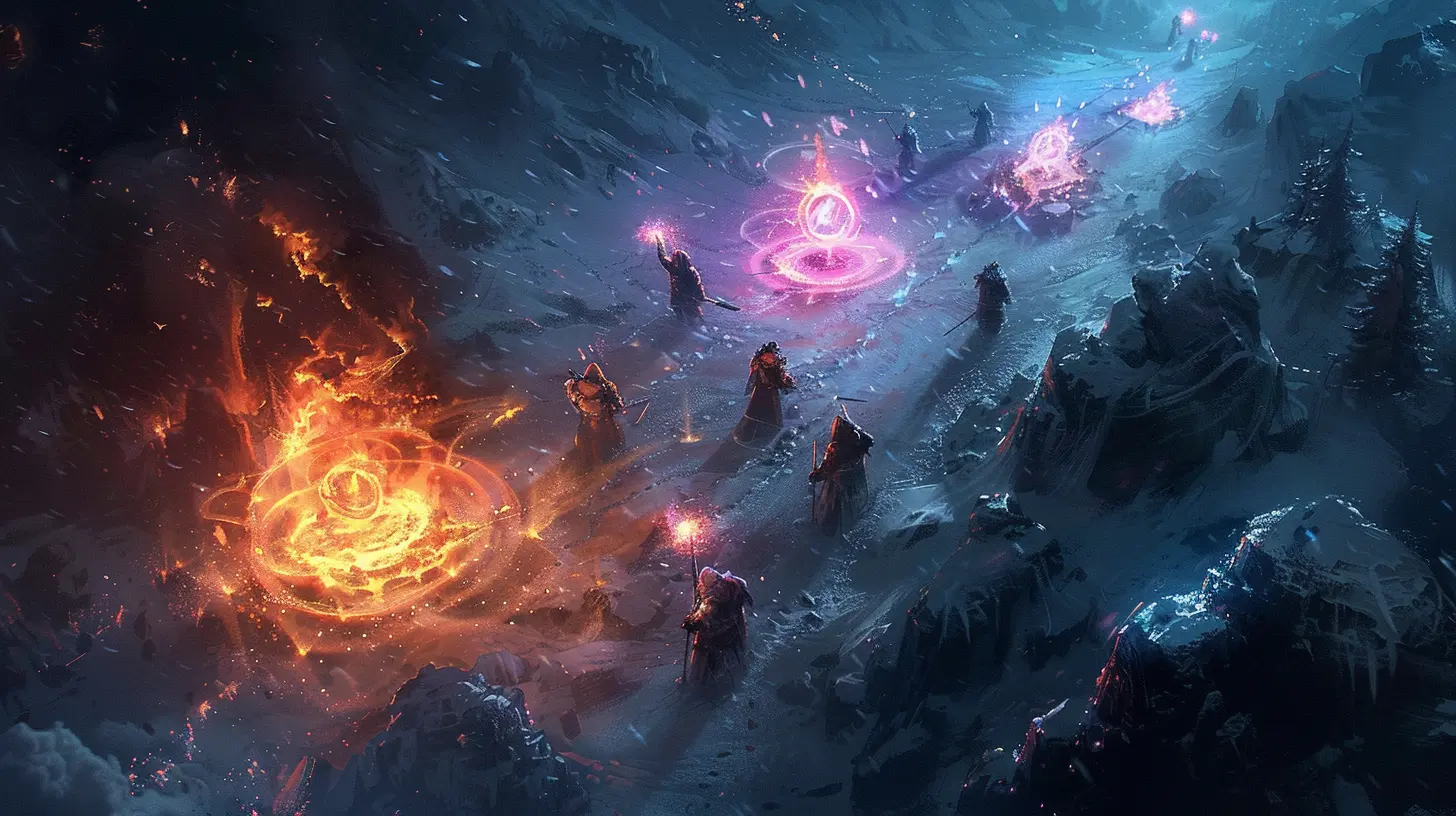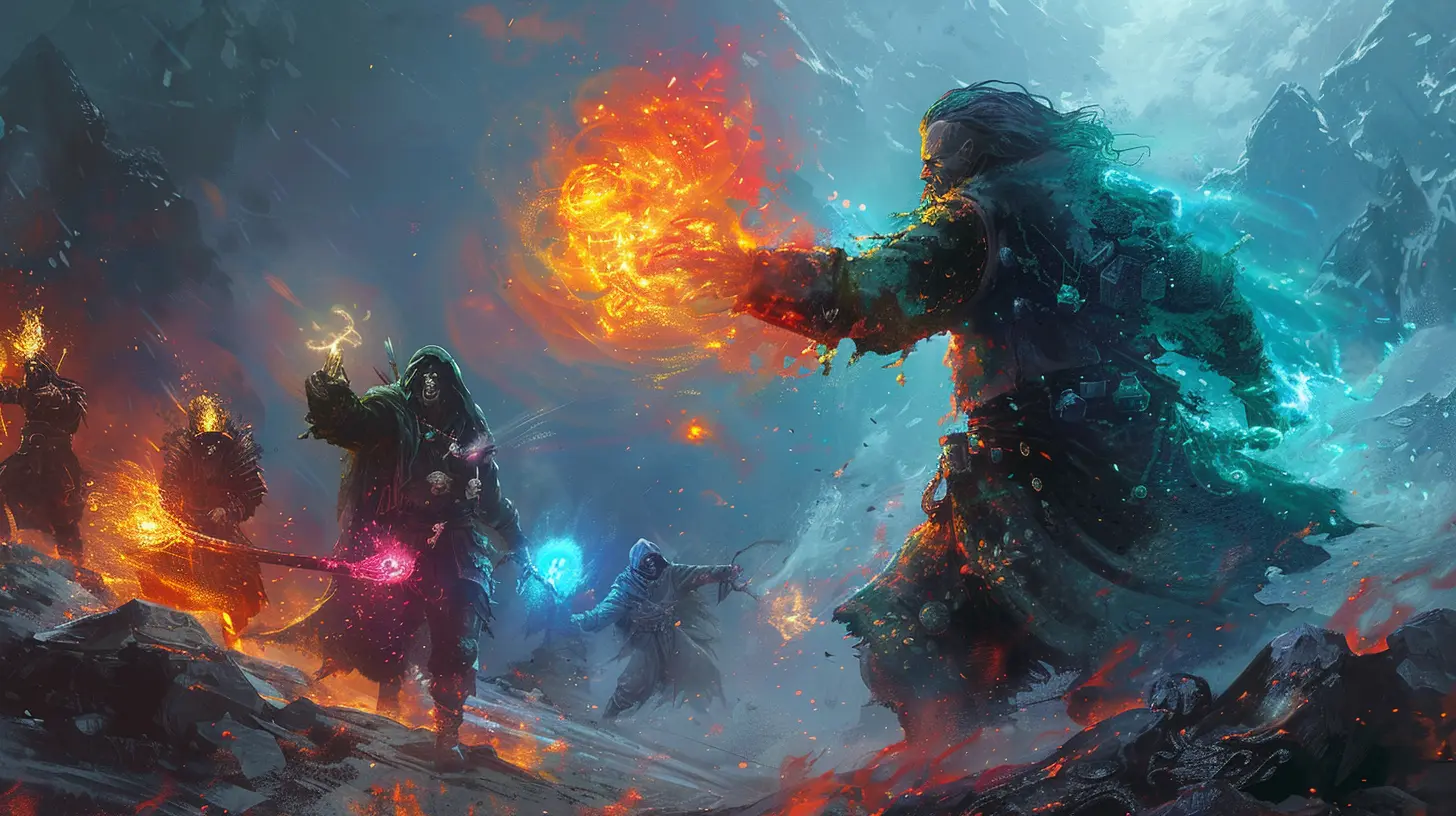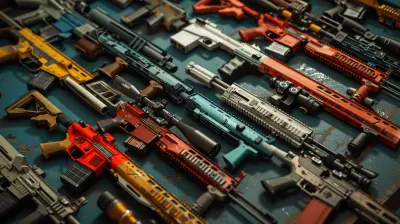Breaking Down the Role of Individual Skill in Team-Based Competitive Games
25 July 2025
When it comes to team-based competitive games, there's always that debate — how much does individual skill actually matter in a team environment? Whether you're pushing ranked ladders in games like League of Legends, Overwatch, or Valorant, or just trying to climb out of your current matchmaking pit, you've probably wondered: "If I play better, shouldn't that be enough?"
Well, the truth lies somewhere between "teamwork makes the dream work" and "one carry to rule them all." Let's crack this open and really understand how individual skill plays a part in team-based competitive games.
The Nature of Team-Based Competitive Games
First things first — what makes a game truly "team-based"?Team-based competitive games are, at their core, built around synergy. They require players to coordinate, communicate, and collaborate to achieve a common goal. Whether it’s capturing objectives, eliminating the enemy team, or defending a zone, these games demand cooperation.
But here's the kicker — even in the midst of all that teamwork, individual skill still shines... and sometimes, it shines a little too brightly.
What Exactly Is "Individual Skill"?
Before we dive too deep, let’s define what we mean by individual skill. It's more than just good aim or fast reflexes. It includes:- Mechanical Ability: That’s your raw performance — aim, movement, reaction time.
- Game Sense: Understanding the flow of the game — when to push, when to retreat, where enemies might be.
- Decision Making: Choosing the right move at the right time under pressure.
- Adaptability: Changing tactics mid-game based on the situation.
- Communication Skills: Even as an individual, how well you call out enemies or relay info matters.
When all these elements come together, you get a player who can potentially tilt the odds in their team’s favor, even in tough situations.
How Individual Skill Impacts Team Performance
Now, let's cut to the chase — how much weight does one skilled player carry in a team game?1. The "Carry" Factor
You’ve seen it before. One player absolutely dominates a game. In MOBAs like Dota 2 or League, it’s the fed mid-laner snowballing into an unstoppable force. In first-person shooters like CS:GO or Valorant, it’s the top-fragging duelist wiping squads solo.A highly skilled player can absolutely carry — to a point. If they're significantly outperforming everyone else in the match, they can drag their team to victory. However, this only works if the gap in skill is wide enough and the team doesn't completely fall apart.
Think of it like towing a truck with a bicycle. If your bike's supercharged and the truck’s on a downhill slope, maybe you have a shot. Otherwise? Not likely.
2. Elevating Team Morale
Here’s something that often gets overlooked — individual performance can boost team confidence. When one player’s popping off or pulling clutch plays, it pumps the team up. They start to believe they can win.Morale can be the sixth man in a game. Confidence fuels aggression, aggression creates space, and space wins objectives.
3. Shot-Calling and Leadership
Skilled players often become de facto leaders — they call plays, direct rotations, or manage the tempo of the game. Their experience helps guide less skilled teammates who may lack game sense or awareness.Over time, this guidance actually raises the team's average performance, turning them into more than just the sum of their parts.
When Individual Skill Isn’t Enough
Okay — so individual skill can be critical. But here's the reality check — in most mid to high-level matches, individual brilliance isn’t a guaranteed win.Here’s why:
1. Coordination Beats Solo Plays
Even if you're a sharpshooter with god-tier reflexes, a well-organized enemy team will almost always outplay you. Think about it — how do you 1v5 a team that's using utility, peeking together, and watching every angle?You might win a duel or two, but you won’t win the match.
2. Role Limitations
Competitive games usually have defined roles or compositions. If you’re the support, top fragging may not even be your job. Your impact might be behind the scenes — healing, shielding, setting up plays.You can’t "carry" every game with raw skill alone, especially if your role isn’t THE carry role.
3. Team Mistakes Are Expensive
It only takes one person missing a rotation, misusing an ultimate, or not trading properly to cost a round. You can be a beast, but if the team is bleeding mistakes left and right, your impact is limited.It’s like trying to win a 100-meter relay with broken batons. You might be the fastest runner, but if your teammates drop the baton, you're still not winning.
Is Solo Queue a True Test of Individual Skill?
Good question. Solo queue — the ranked mode where you get paired with strangers — is where individual skill often gets put under the microscope.Yes, solo queue tests your personal ability to adapt, perform, and even carry. But it's also slightly chaotic. Coordinated team play is rare. Communication can be nonexistent. Tilt and toxicity are common.
So does it reflect your true skill? Only partially. It showcases how well you perform alone and how quickly you adapt to random teams. However, it doesn’t fully reflect how you'd perform in a structured team with practice and synergy.
Game Genre Differences
Let’s pause and talk genre for a second. The weight of individual skill varies depending on the type of team-based game.MOBAs (e.g., League of Legends, Dota 2)
- Individual skill plays a massive role in early game dominance.- Snowball mechanics reward solo leads.
- But late game? Team fights, macro play, objective control — all require tight coordination.
Tactical Shooters (e.g. Valorant, CS:GO)
- One-tap aimers can win rounds.- Smart lurks, site executions, and clutches can show off individual flair.
- However, utility usage and trade-fragging require team coordination.
Hero Shooters (e.g., Overwatch)
- Every character has a role, and synergy is everything.- Pocketing a great DPS as Mercy is a team play.
- One player out of sync can throw the rhythm off.
Battle Royales with Squads (e.g., Apex Legends, Warzone)
- Individual clutch potential is huge in 1v3s.- Rotations, revives, and drop spots are team decisions.
- Solo heroes often fall to coordinated third parties.
Smurfing and Boosting: An Unnatural Showcase of Individual Skill
Let’s talk about smurfs — players who intentionally play on lower-ranked accounts. It’s one of the clearest demonstrations of how overpowering raw individual skill can be… but also how poorly it scales.Sure, a high-ranked player in lower elo will dominate. But drop them back in their real rank? Suddenly, they’re facing players who require more than mechanics to beat — they need better team-based decision making.
Smurfing gives us an illusion. It shows individual skill at its height, but it's uncontrolled and unrealistic in balanced matchmaking.
The Sweet Spot: Merging Skill with Teamplay
So where does that leave us?Honestly, the most effective players in team-based competitive games are those who can blend both worlds — they’ve got the mechanics, the awareness, the leadership, and also the humility to play for the team.
They understand their role, adapt when needed, and still bring heat when the situation calls for it.
These players:
- Don’t overextend for solo plays.
- Use comms wisely.
- Set up teammates for success.
- Know when to take over and when to support.
They’re like the quarterbacks of gaming — capable of doing it all, but smart enough to delegate and use the rest of the team effectively.
Tips to Improve Your Individual Skill Without Ignoring Teamplay
Feel like your team’s always holding you back? Start here:1. Focus on Fundamentals
- Perfect your aim, movement, map awareness.- Master your preferred roles.
- Watch pros and analyze their plays.
2. Communicate Effectively
- Don’t just yell “he’s low!” — be clear and calm.- Call out positions, rotations, utility.
3. Learn to Read Your Team
- Is your team playing slow? Match their pace.- Are they aggressive? Support them.
Adaptability is your best friend.
4. Play With a Stack When Possible
- Duo queue or find a premade group.- It reduces randomness and increases synergy.
5. Don’t Let Ego Become Your Enemy
- You're not going to be the MVP every game.- Sometimes, enabling your teammates is the strongest play.
Final Thoughts
Here’s the bottom line — individual skill can absolutely make a difference in team-based competitive games, but it’s not a silver bullet. It’s a powerful piece of the puzzle, not the whole picture.You might be the best aimer or the smartest player in the lobby, but if you’re not working with — or at the very least around — your team, you’re setting yourself up for frustration.
Focus on growing both as a powerhouse player and a reliable teammate. That’s the game-changer. When you master that balance, you’re not just climbing the ranks; you’re dominating.
all images in this post were generated using AI tools
Category:
Competitive GamingAuthor:

Luke Baker
Discussion
rate this article
2 comments
Matilda Walker
Skill drives synergy, enhances strategy.
November 9, 2025 at 4:41 PM

Luke Baker
Thank you! I completely agree—individual skills are crucial in fostering synergy and improving overall team strategy in competitive games.
Vesper McGrath
Great insights! Individual skill truly shapes team dynamics in competitive gaming!
July 28, 2025 at 2:57 AM

Luke Baker
Thank you! I'm glad you found the insights valuable. Individual skill definitely plays a crucial role in shaping team dynamics!


